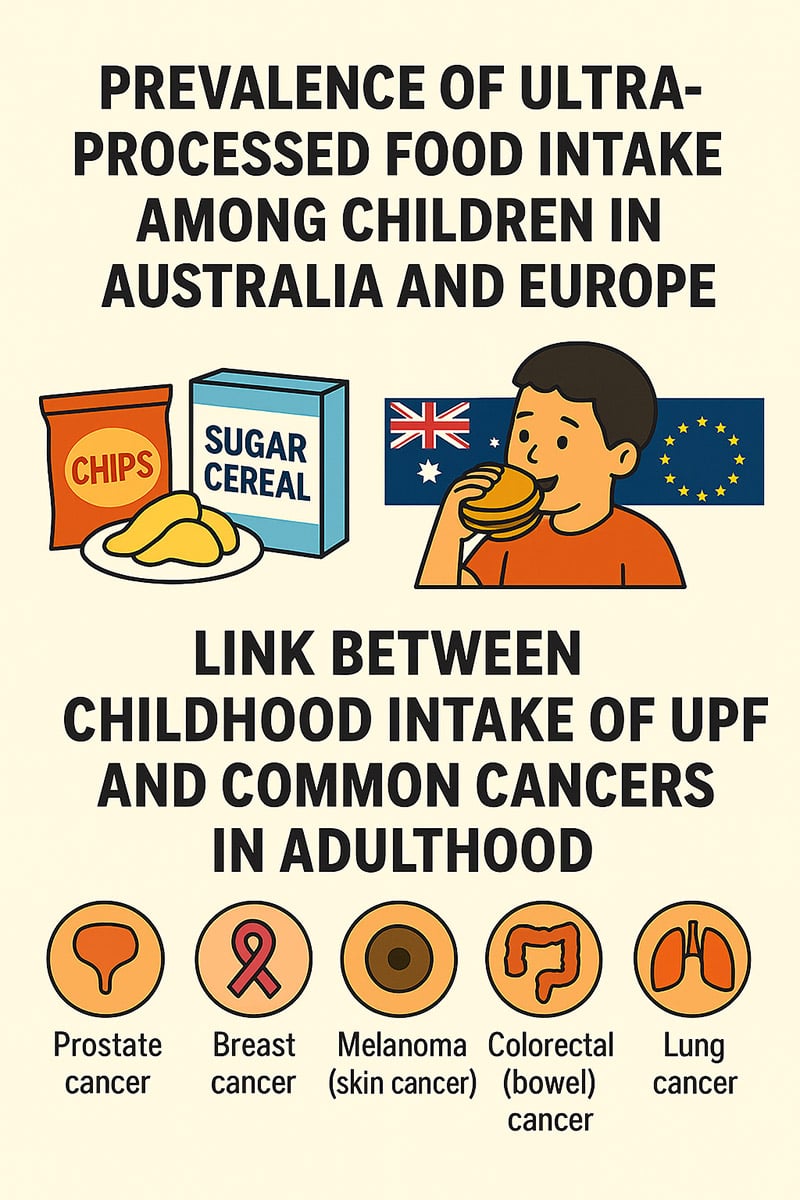Grant title: Ultra-processed food intake in childhood and their link to future risk of cancer
Institution: Murdoch Children’s Research Institute
Grant awarded: September 2025
Our research team is grateful for World Cancer Research Fund’s support in enabling us to better understand the scale of ultra-processed food intake among children across multiple countries and for the first time its impact on future cancer risk – Dr Sherly (Xueyi) Li
Background
Ultra-processed foods (UPFs) are highly processed, ready-to-eat products made with industrial ingredients and additives. These foods, such as packaged snacks, sugary cereals and processed meats are designed to be tasty, convenient and affordable. However, research shows that a high intake of UPFs can displace healthier foods in children’s diets, shape long-term eating habits and contribute to health problems later in life. Children eat a lot of UPFs, but we don’t know exactly how much. The last estimate for Australian children’s UPF intake is over a decade old. With the rapid expansion of UPF marketing, especially targeting infants and toddlers, new data is urgently needed.
Emerging evidence links UPFs to cancer risk. Studies suggest that consuming high amounts of UPFs in adulthood increases the risk of several cancers. However, no research has yet explored whether eating these foods in childhood contributes to cancer risk later in life.
Aims and objectives
We aim to estimate children’s intake of UPF and the burden on adult cancer in Australia and selected European countries.
How it will be done
We will estimate how much UPF Australian and European children are eating, from toddlers through to adolescence, using 3 large representative datasets:
- Generation Victoria (GenV, Australia): 20,000 children aged 1–4 years
- National Nutrition and Physical Activity Survey (Australia, 2024): includes dietary data from 10,000 participants 2 years of age and over
- European Food Safety Authority’s EU Menu Project (2024, Europe): a harmonised nutrition dataset covering 41,000 children (from 3 months old) across 25 European countries
Using this data and published research, we will estimate the proportion of adult cancers that could be prevented if UPF consumption during childhood was reduced. We will focus on 5 common cancers with known links to diet: prostate, breast, melanoma (skin), bowel and lung cancers.

Created by Dr Sherly (Xueyi) Li, Murdoch Children’s Research Institute
Potential impact
Our study will provide the first comprehensive data on childhood UPF intake in Australia and Europe. The findings will be critical for updating the Australian Dietary Guidelines, which are currently under review and have requested new evidence on UPFs. They will also be essential for informing policy reforms on commercial infant and toddler foods, and developing strategies to reduce UPF intake in children and improve long-term health outcomes.
By identifying the impact of UPFs on children’s diets and long-term health, we aim to provide evidence that can help shape policies to promote healthier food environments for future generations.
